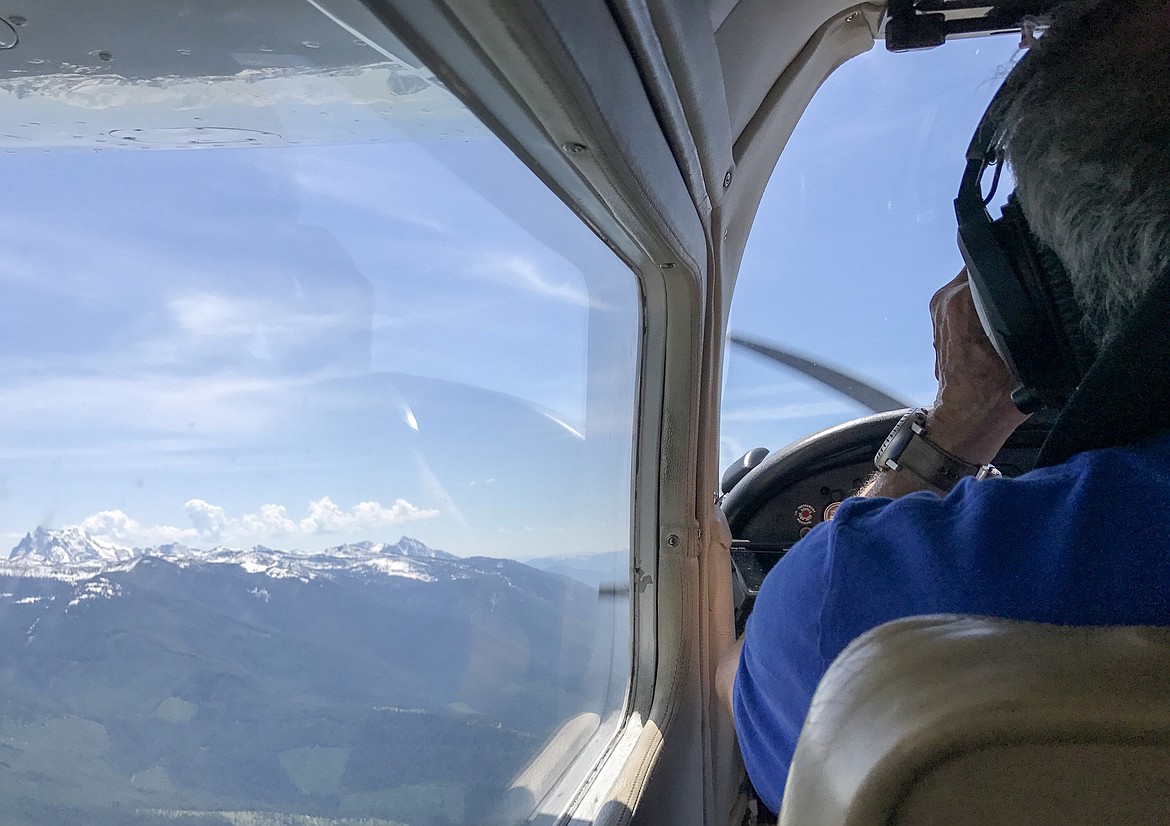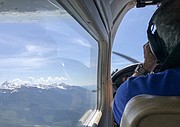Flying toward compromise
The skies above southern Lincoln County were clear May 30 as Bruce Gordon taxied his Cessna 210 and took off from Libby Airport, aiming for the Scotchman Peaks. On board were journalists and people whose aim is to get wilderness area designation for the jewel-like mountains southwest of Libby.
“It’s the easiest way to get people introduced to a place like that without getting them in a backpack and taking them out in the country,” said Sandy Compton, program director for Friends of Scotchman Peaks Wilderness and one of the flight’s passengers, a week after Gordon provided the jaunt courtesy of his nonprofit organization Ecoflight. Gordon offers flights worldwide to bring an aerial perspective to conservation areas. He’s flown people over Cabinet Peaks Wilderness Area and Scotchman Peaks for about a decade, and recently flew U.S. Secretary of the Interior and former Montana Representative Ryan Zinke over the contested Bears Ears National Monument in Utah.
“The aerial view really lets the land speak for itself,” he said.
Giving voice to these mountains is crucial to Compton’s organization, which since 2005 has worked to have the Scotchman Peaks roadless area officially protected as wilderness.
Compton said “it’s a very interesting time right now” for the group. In December 2016, Idaho Senator Jim Risch introduced the Scotchman Peaks Wilderness Act in support of designating as wilderness the area’s 14,000 acres on the Idaho side. The Act still needs some work and public comment, Compton said, yet he expects Risch to reintroduce the Act later this year.
“We’re pretty optimistic it’s going to get passed,” Compton said.
The Act’s passage could serve as leverage for lawmakers in Montana, where Compton said they would redouble their efforts to get the 50,000 acres on the Montana side designated as wilderness.
“It’s a little bit of a lever in the sense of getting their attention and saying look what Idaho did,” he said.
Compton considers Sen. Jon Tester a “champion” of their cause, and Sen. Steve Daines and Rep. Greg Gianforte “not so much.”
“But what we found in Idaho and in watching other efforts,” he said, “is that when the community says ‘this is what we want,’ the lawmakers generally listen,” especially at the ground level of local politics.
Compton said the Friends have support in Sanders County but need to work on convincing more people in Lincoln County of the value of the proposed wilderness area.
“We opened our office in Lincoln County a couple years ago because we believe that if you’re going to influence the neighborhood you gotta be a neighbor,” he said.
Since then, Friends of the Scotchman Peaks has worked with the Kootenai River Development Council to co-sponsor a series of prosperity forums. It also started working with Libby Schools, offering a “Winter Tracks” outdoor education program.
Being part of the neighborhood and a good neighbor, Compton said, opens the conversation about wilderness.
“We’re all on the same side,” he said. “We all want clean air, clean water, we like for our kids to have safe places to live. We have much more in common than we have not in common.”
Knowing compromise is as necessary as neighborliness, Compton pointed to the Kootenai Forest Stakeholders Coalition as inspiration. He noted its ability to bring to the table “recreationists, business owners, mill operators and conservationists,” as its website states.
Compton said the coalition last year brokered a hard-won agreement among recreational users of the Kootentai National Forest and the timber companies that rely upon it for doing business.
“Everybody didn’t get everything they wanted, but everybody got quite a bit of what they wanted,” Compton said.




